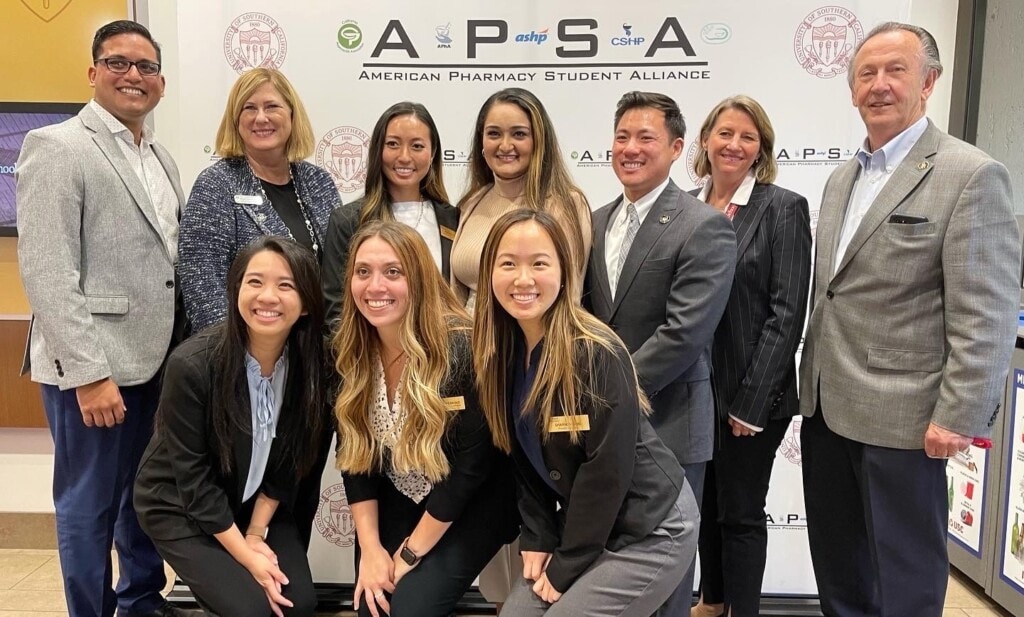The USC American Pharmacy Student Alliance (APSA) hosted pharmacy industry leaders and students at the USC School of Pharmacy’s annual Legislative Day on Friday, October 22. The purpose of this annual student-organized event is to educate the pharmacy student body on the importance of building awareness around past and present legislation in order to advance and expand the profession’s scope of practice, and improve health outcomes for all, including our most vulnerable communities.
In welcoming participants to the program, Dean Vassilios Papadopoulos referenced the School’s long history of working to expand the scope of practice for pharmacists, and encouraged students to take an active role in advocating for the profession. “Each one of us has a role to play. There is one thing you can start doing today, it is raising awareness of what pharmacists do and the impact pharmacists can have on improving health.”
He also addressed the ways in which the COVID-19 pandemic “revealed deep disparities in how health care is accessed and utilized,” especially in underserved communities who had high percentages of death rates for black, indigenous, and people of color.
California Pharmacists Association (CPhA) CEO Susan Bonilla talked about the profession’s legislative wins and losses throughout recent years and during the COVID-19 pandemic. She encouraged students to work with legislators in seeking solutions to the problems underserved communities continue to face due to the lack of access to healthcare. “With some organization, pharmacists who become activated to become politically involved can change the landscape and direction of the profession.”
Second-year PharmD student Kathryn Perkins, USC APSA’s director of legislative affairs, also reiterated the importance of active engagement in the profession of pharmacy.
“After investing so much time, energy and finances into our education, we should make the effort to be aware and engaged in matters that impact our future in pharmacy,” Perkins said.
Assistant Professor of Clinical Pharmacy and CPhA President Richard Dang spoke on the crucial role the standard of care model plays in moving pharmacy “out of the restrictive and prescriptive scope of practice” by acknowledging the clinical ability of pharmacists based on their education and advanced training. He explained how the continuous efforts of pharmacists and allies had a significant impact in the language of California’s sunset review that legally requires the board of pharmacy to explore regulations that will allow the standard of care model.
Dang also highlighted the ways the COVID-19 pandemic made legislators rethink the definition of a front-line healthcare worker as pharmacists played a key role in vaccine distribution, and were required to continue providing essential services during the economic shutdown.
Also speaking at the event were Kari Franson, Associate Dean for Academic and Student Affairs; Lisa Gunther, PharmD ’86, immediate past president of California Society of Health-System Pharmacists (CSHP); Rajan Vaidya, Vice President of Practice and Professional Development at CPhA; and Steve Grey, past president of CPhA and CSHP.
Legislative Day concluded with a Q&A, trivia competition, and an opportunity for students to network with pharmacy industry leaders.


